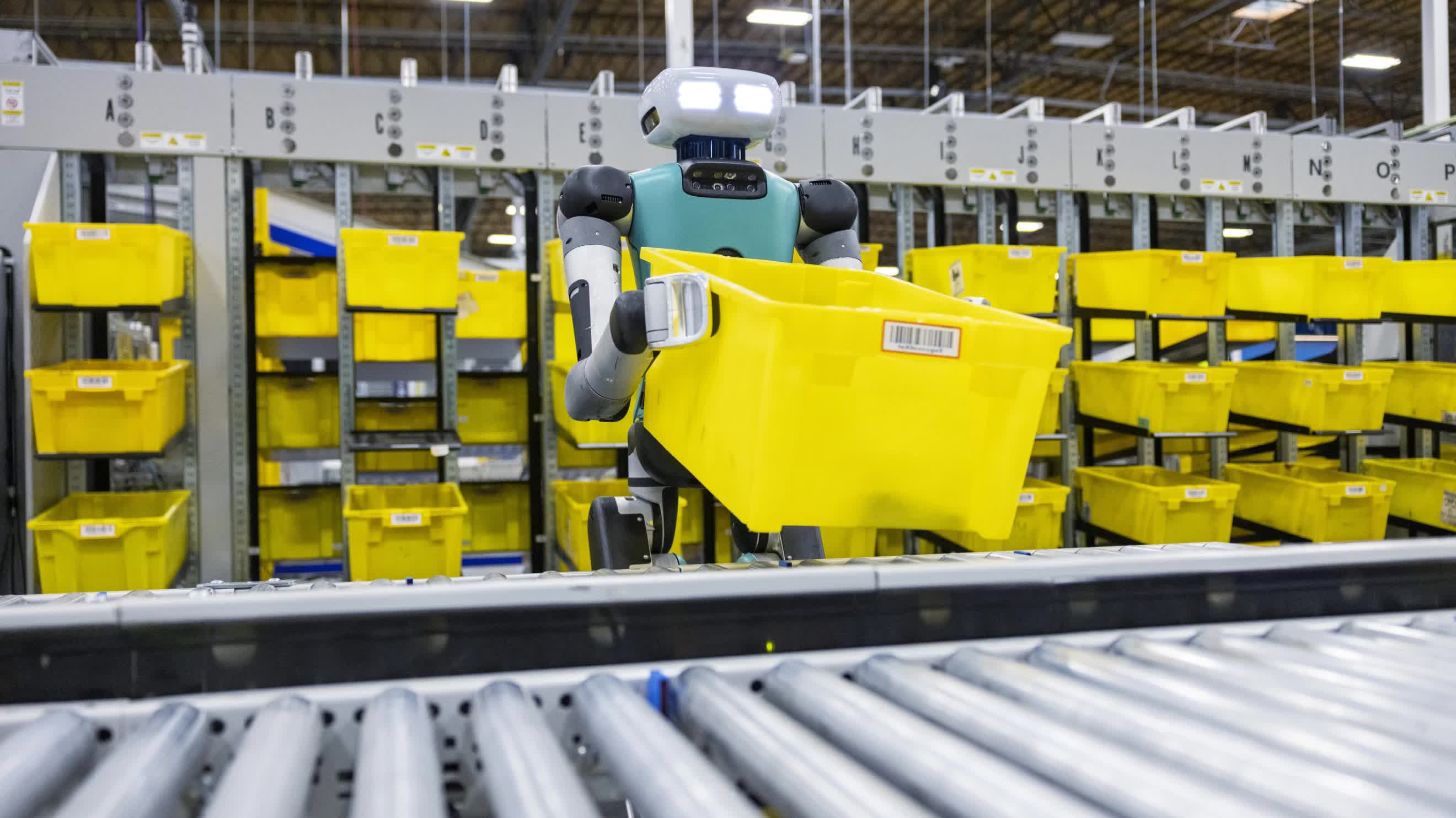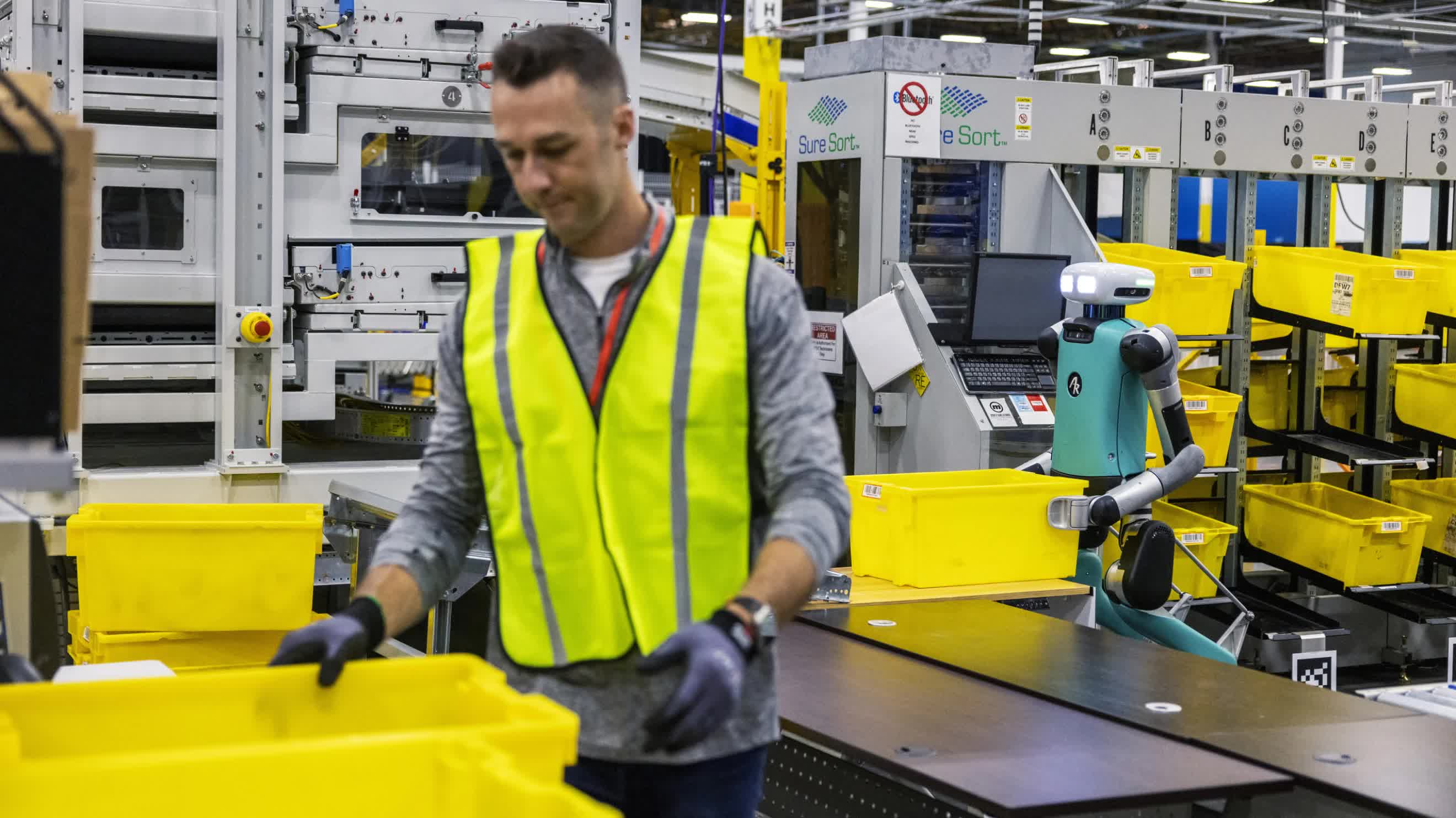A hot potato: It's not just generative AI causing people to worry about their jobs. Those with manual professions such as warehouse employees are seeing increasingly advanced and human-like robots join the workforce. But the company behind some of these machines insists that they are designed to help, not replace, people.
Amazon announced in October that two more types of robot would be joining its warehouses for a testing phase. One was Sequoia, a Roomba-like machine designed to identify and store inventory and reduce order processing time. The other was Digit, a 5-foot 9-inch 143-pound robot from Agility Robotics.
The two-legged Digit can walk forward, backward, and sideways, squat and bend, and move, grasp, and handle items using its arm/hand-like clasps. All of which makes it sound like the perfect replacement for fleshy humans who need things like rest, bathroom (and bottle?) breaks, and wages.
Digit performs repetitive tasks such as tote recycling and bulk material handling. Damion Shelton, CEO of Agility Robotics, told Business Insider that there aren't enough workers for these types of jobs. "So, what's far more dire than any perceived fears about job replacement is the fact that the health of these businesses is at stake," Shelton added. As a side note, Amazon made $9.9 billion in profits and $143 billion in revenue during the last quarter.
Shelton added that Agility Robotics' machines are designed to work alongside humans, not replace them. We've heard similar arguments in reports about generative AI "augmenting" rather than replacing jobs, but the technology is still putting plenty of people out of work, and is expected to replace over 2 million US jobs by 2030.
"Our robot is meant to complement people and let workers be more productive by taking on dangerous, repetitive tasks so people can focus on the more interesting, creative aspects," Shelton said.
Anything that can perform dangerous or repetitive work that would normally be performed by a human should be welcomed, as long as it doesn't come at the expense of that person's job. Robot makers may claim this is the case, but as these products become increasingly advanced, it would be naïve to think they aren't going to put some people out of a job.
In other recent Amazon news, the company was blasted this month for running a promotion at one of its warehouses that asked employees facing financial hardships to write a letter to Minion-like mascot Peccy for help.

